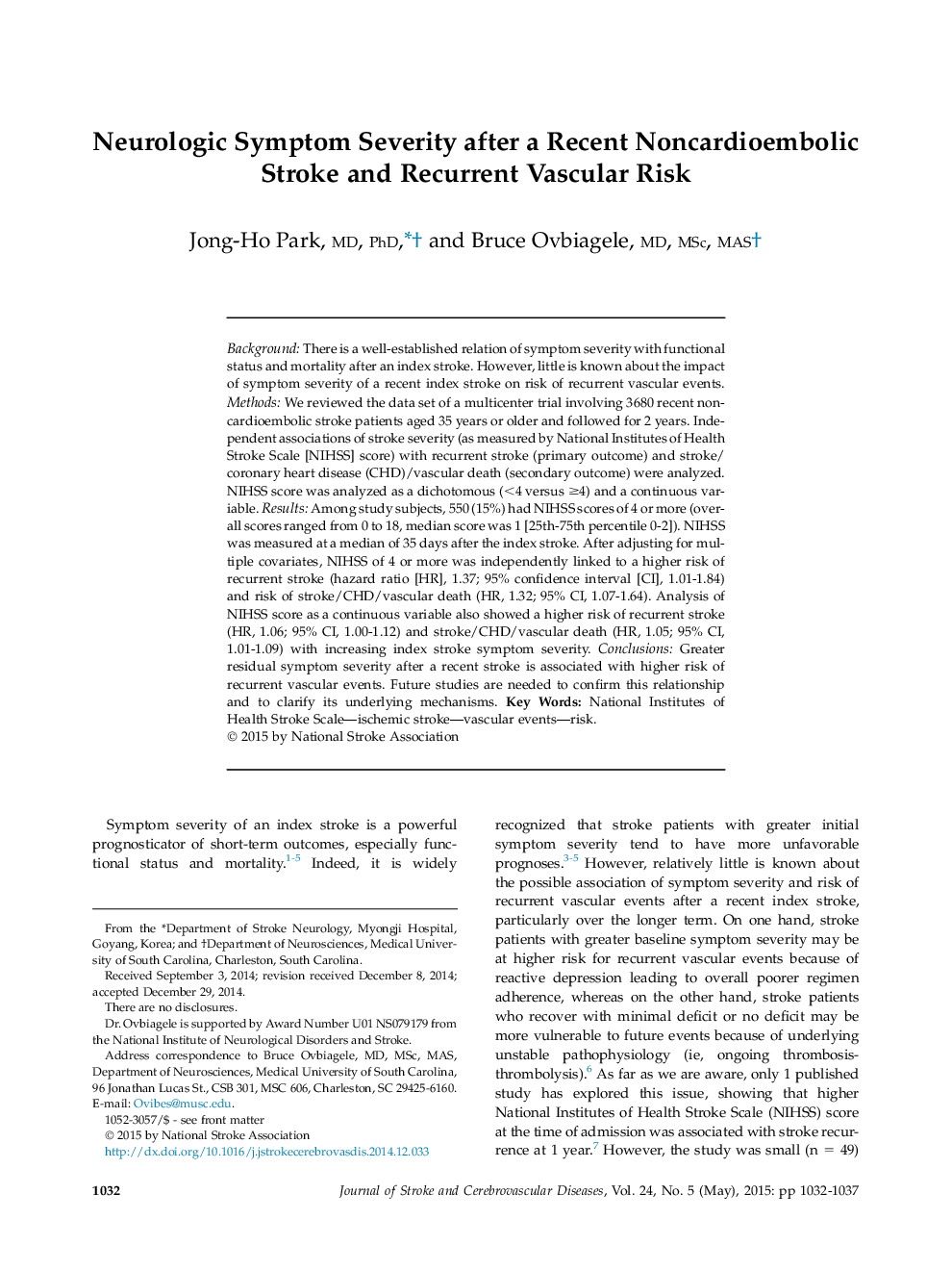| Article ID | Journal | Published Year | Pages | File Type |
|---|---|---|---|---|
| 2703907 | Journal of Stroke and Cerebrovascular Diseases | 2015 | 6 Pages |
BackgroundThere is a well-established relation of symptom severity with functional status and mortality after an index stroke. However, little is known about the impact of symptom severity of a recent index stroke on risk of recurrent vascular events.MethodsWe reviewed the data set of a multicenter trial involving 3680 recent noncardioembolic stroke patients aged 35 years or older and followed for 2 years. Independent associations of stroke severity (as measured by National Institutes of Health Stroke Scale [NIHSS] score) with recurrent stroke (primary outcome) and stroke/coronary heart disease (CHD)/vascular death (secondary outcome) were analyzed. NIHSS score was analyzed as a dichotomous (<4 versus ≥4) and a continuous variable.ResultsAmong study subjects, 550 (15%) had NIHSS scores of 4 or more (overall scores ranged from 0 to 18, median score was 1 [25th-75th percentile 0-2]). NIHSS was measured at a median of 35 days after the index stroke. After adjusting for multiple covariates, NIHSS of 4 or more was independently linked to a higher risk of recurrent stroke (hazard ratio [HR], 1.37; 95% confidence interval [CI], 1.01-1.84) and risk of stroke/CHD/vascular death (HR, 1.32; 95% CI, 1.07-1.64). Analysis of NIHSS score as a continuous variable also showed a higher risk of recurrent stroke (HR, 1.06; 95% CI, 1.00-1.12) and stroke/CHD/vascular death (HR, 1.05; 95% CI, 1.01-1.09) with increasing index stroke symptom severity.ConclusionsGreater residual symptom severity after a recent stroke is associated with higher risk of recurrent vascular events. Future studies are needed to confirm this relationship and to clarify its underlying mechanisms.
